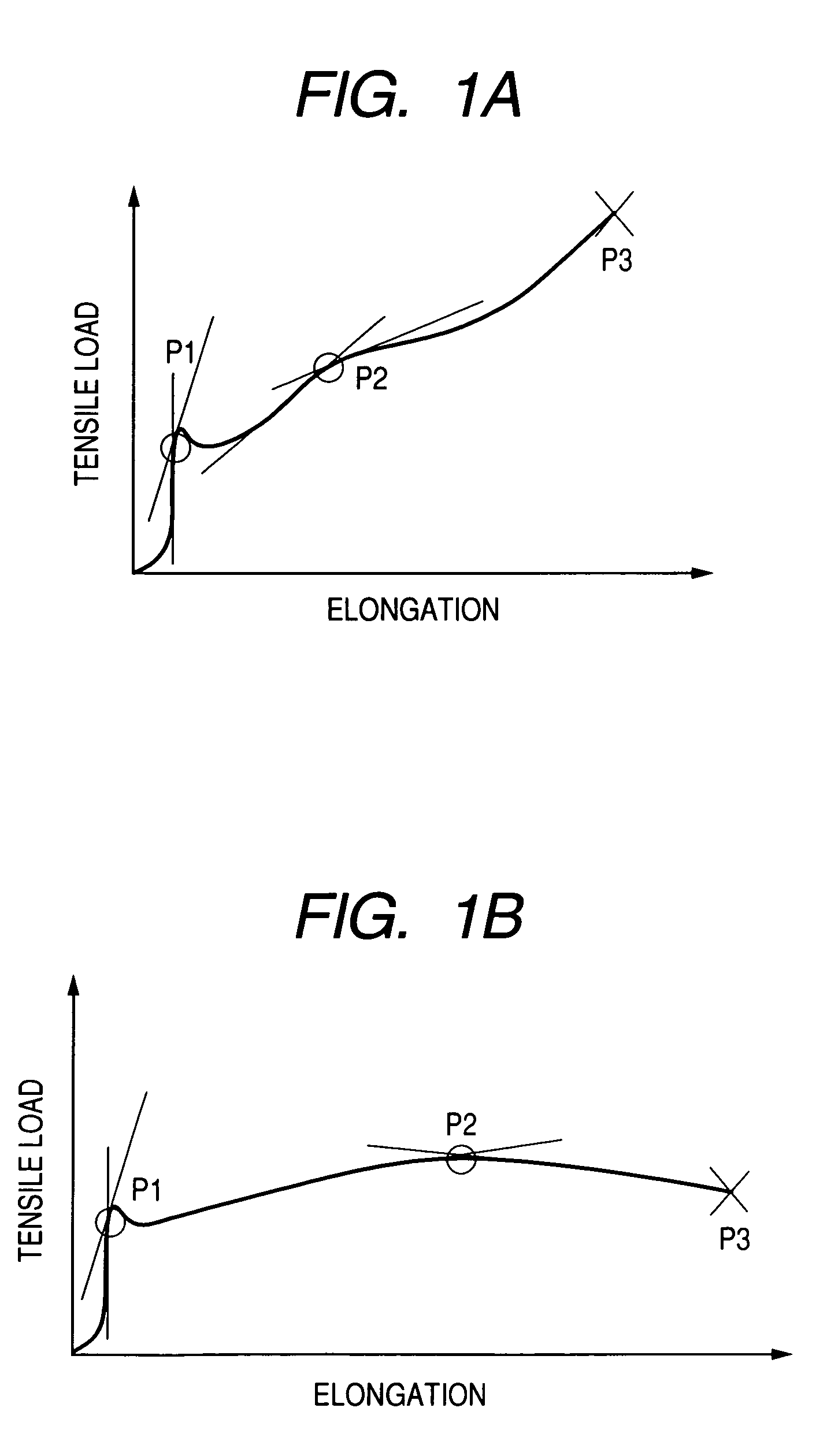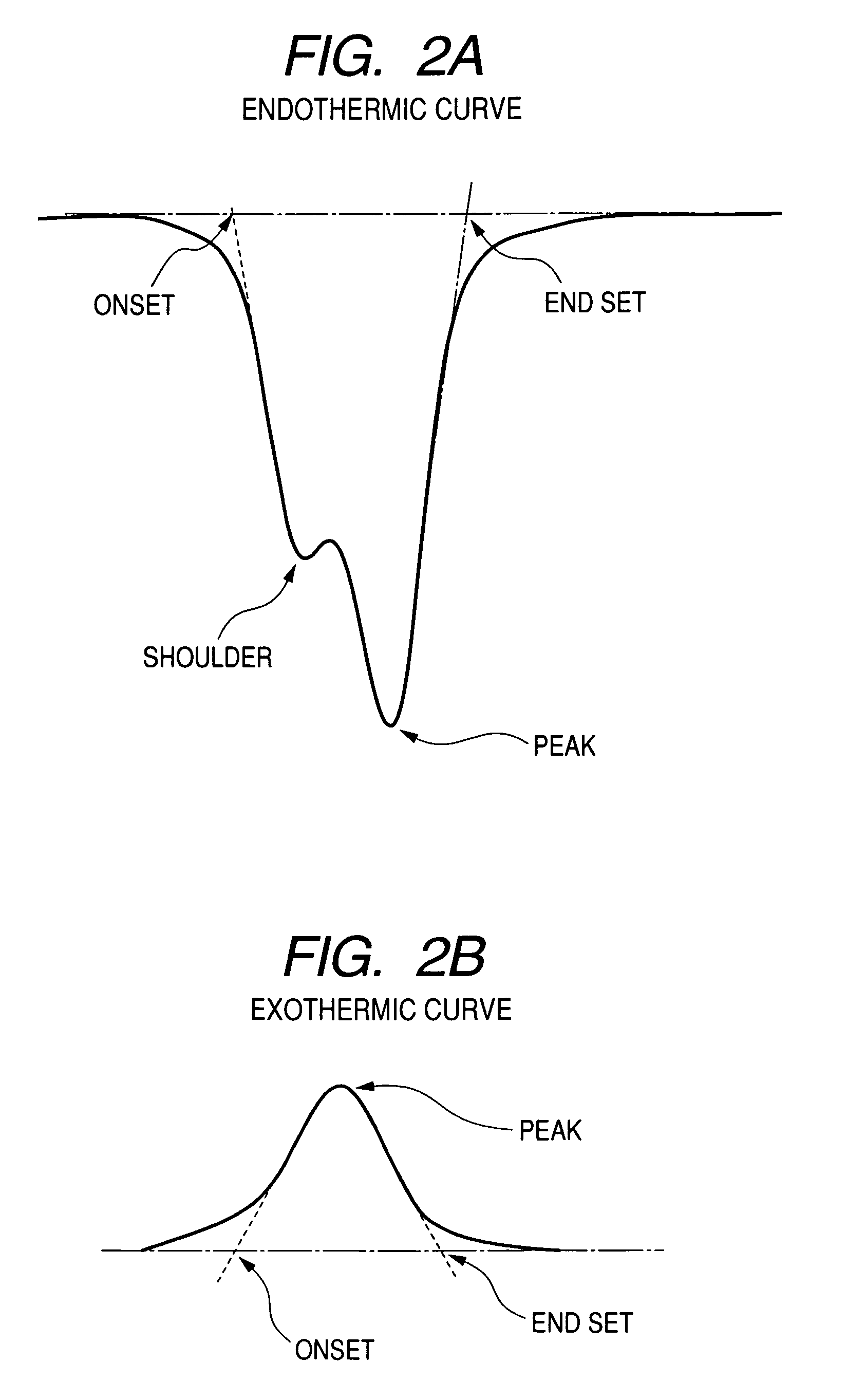Non-porous sinter molded article of tetrafluoroethylene resin, expanded tetrafluoroethylene resin molded article, producing methods therefor, composite member, filter, impact deformation absorber and sealing material
a technology of tetrafluoroethylene resin and molded article, which is applied in the direction of synthetic resin layered products, electrical equipment, separation processes, etc., can solve the problems of voids limiting the formation of small pores, unable to obtain filters, and difficulty in obtaining filters, etc., to achieve superior impact absorption properties, high deformability, and effective use
- Summary
- Abstract
- Description
- Claims
- Application Information
AI Technical Summary
Benefits of technology
Problems solved by technology
Method used
Image
Examples
example 1
[0075]PTFE fine powder (Fluon CD123, manufactured by Asahi Glass Co.), after being mixed with 25 parts by weight of naphtha, is let to stand in a sealed container for 48 hours, and then is extruded with a T-die paste extruder into a sheet of a width of 200 mm and a thickness of 3 mm. Then the thickness is regulated to 290 μm by a rolling mill. Then naphtha is removed by drying. As a result of a thermal analysis (measurement of heat of fusion) on this sheet, the endothermic curve of the first step shows a peak at 347.4° C. and a shoulder at about 342.0° C. in the low temperature side, and provides an endothermic amount of 59.7 J / g. The endothermic curve of the third step does not show an evident shoulder and shows a peak at 331.3° C., with an endothermic amount of 17.4 J / g.
[0076]The sheet is irradiated with a gamma-ray (radiation source: cobalt 60) with a dose of 2.3 kGy. As a result of thermal analysis on this sheet after the irradiation, the endothermic curve of the first step no l...
example 2
[0085]A sheet is prepared in the same manner as in Example 1, except that the dose of gamma-ray (radiation source: cobalt 60) is changed to 800 Gy. As a result of thermal analysis on this sheet, the endothermic curve of the first step no longer shows the shoulder observed before irradiation, and shows a peak at 340.1° C., with a heat of fusion of 51.9 J / g. Also the endothermic curve of the third step does not show an evident shoulder, and shows a peak at 327.5° C., with a heat of fusion (endothermic amount) of 33.3 J / g.
[0086]This sheet, after being heated at 370° C. for 5 minutes by a hot air-circulating thermostat chamber, is cooled, then held at 315° C. for 8 hours and then spontaneously cooled. This sheet, in a measurement of expandability in the width direction, shows a strain of 493% at the second yield point and a strain of 2162% at the breaking point. Thereafter, this sheet is expanded by 490% in the width direction, under same conditions as in the measuring method for expand...
example 3
[0087]A sheet is prepared in the same manner as in Example 1, except that the radiation is changed to an electron beam, and that the irradiation of 5 kGy is conducted under conditions of an accelerating voltage of 2 MeV and a current of 0.5 mA. As a result of thermal analysis on this sheet, the endothermic curve of the first step no longer shows the shoulder observed before irradiation, and shows a peak at 336.5° C., with a heat of fusion of 55.0 J / g. Also the endothermic curve of the third step does not show an evident shoulder, and shows a peak at 329.8° C., with a heat of fusion (endothermic amount) of 38.2 J / g.
[0088]This sheet, after being heated at 370° C. for 5 minutes by a hot air-circulating thermostat chamber, is held at 315° C. for 8 hours and then spontaneously cooled. This sheet, in a measurement of expandability in the width direction, shows a strain of 1087% at the second yield point and a strain of 2280% at the breaking point. Thereafter, this sheet is expanded by 108...
PUM
| Property | Measurement | Unit |
|---|---|---|
| melting temperature | aaaaa | aaaaa |
| melting temperature | aaaaa | aaaaa |
| melting temperature | aaaaa | aaaaa |
Abstract
Description
Claims
Application Information
 Login to View More
Login to View More - R&D
- Intellectual Property
- Life Sciences
- Materials
- Tech Scout
- Unparalleled Data Quality
- Higher Quality Content
- 60% Fewer Hallucinations
Browse by: Latest US Patents, China's latest patents, Technical Efficacy Thesaurus, Application Domain, Technology Topic, Popular Technical Reports.
© 2025 PatSnap. All rights reserved.Legal|Privacy policy|Modern Slavery Act Transparency Statement|Sitemap|About US| Contact US: help@patsnap.com


